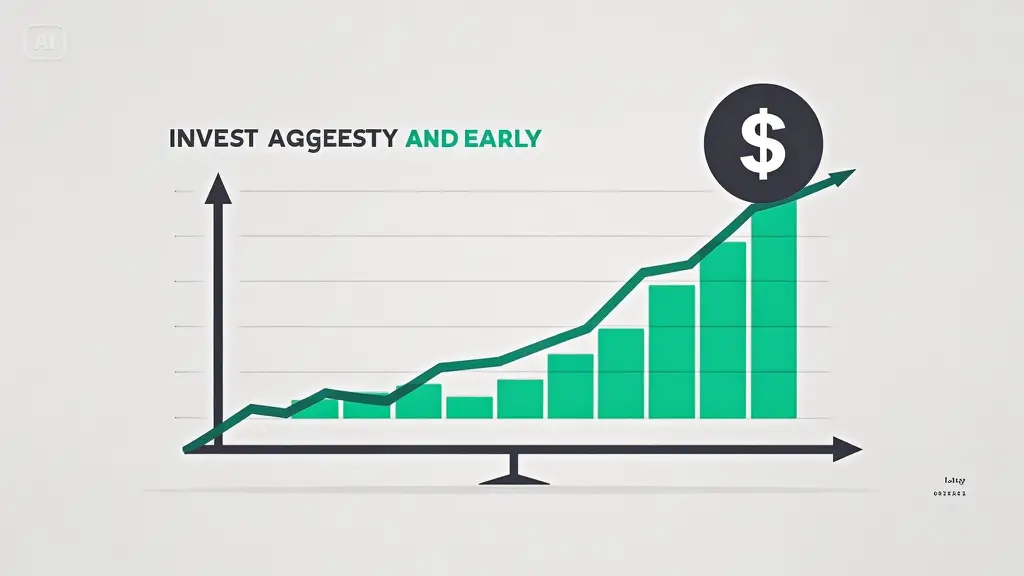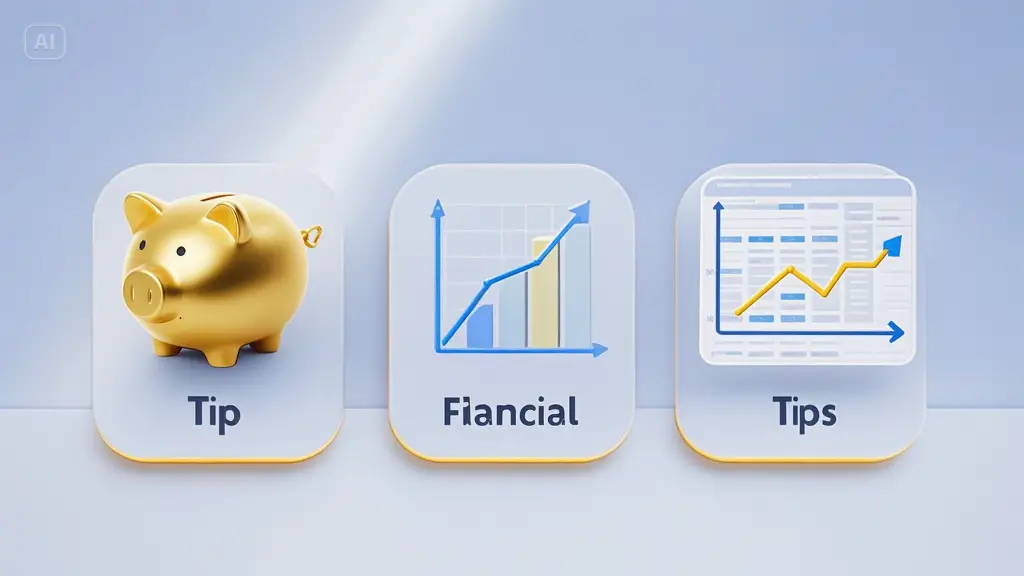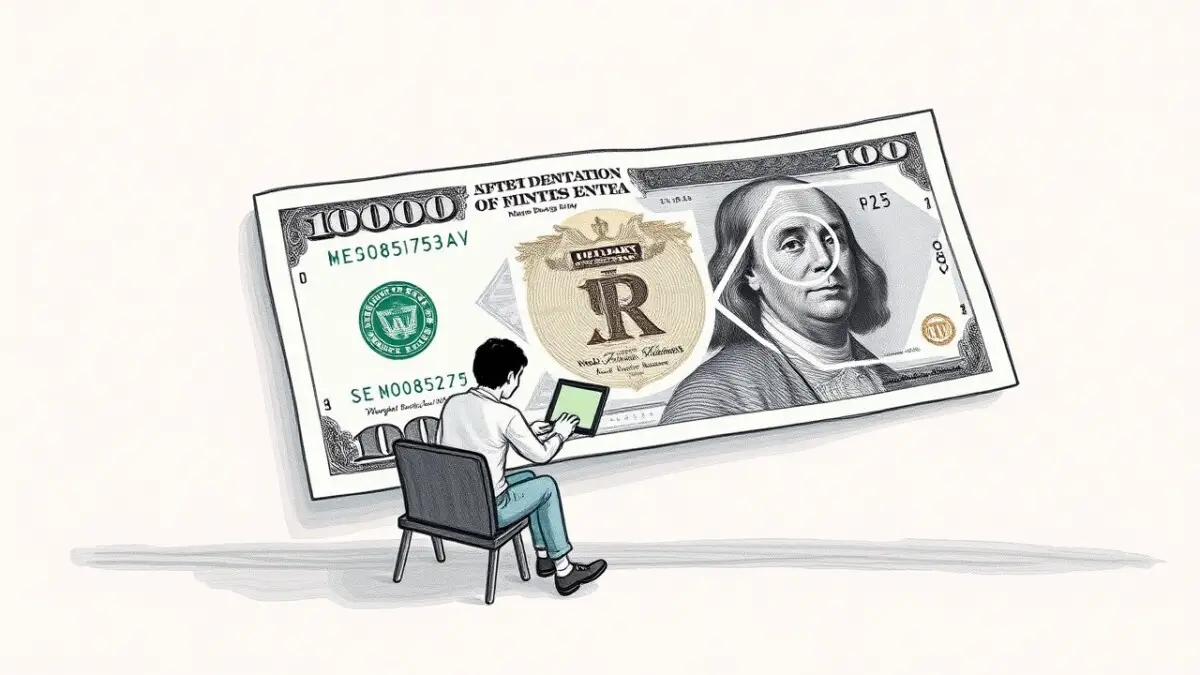3 Financial Tips! Retiring early might seem like an elusive dream, something reserved for lottery winners or Silicon Valley moguls. But the truth is, it’s far more achievable than most people realize. Imagine gifting yourself an extra decade of freedom—ten precious years to pursue hobbies you’ve always been passionate about, explore new corners of the world, or simply enjoy more quality time with loved ones. This isn’t a fantasy exclusive to the ultra-wealthy or the lucky few who stumble upon windfalls. Early retirement is attainable for ordinary people, provided you have the right mindset and a solid plan.
Achieving this dream starts with intentional financial planning, a disciplined approach to spending and saving, and a focus on strategies that maximize your money’s potential. By rethinking your priorities and making deliberate choices today, you can break free from the 9-to-5 grind far earlier than your peers.
In this article, we’ll delve into three transformative financial tips that can help you retire a full decade sooner than you ever thought possible. These aren’t flashy, unrealistic shortcuts—they’re proven, actionable steps that will put you firmly on the path to financial independence. Are you ready to take control of your future? Let’s get started!

Tip 1: Master the Art of Budgeting
Budgeting is the bedrock of any sound financial plan. Without a clear understanding of where your money goes each month, it’s impossible to maximize savings or invest effectively. Here’s how you can transform your budgeting game and unlock early retirement:
Track Every Dollar
You can’t control what you don’t measure. Start by tracking every single dollar you spend. This might seem tedious at first, but it’s essential for identifying spending patterns and uncovering areas where you can cut back.
- Use Apps: Tools like Mint, YNAB (You Need A Budget), or PocketGuard make it easy to categorize your expenses automatically.
- Manual Tracking: If you prefer hands-on control, create a simple spreadsheet to log your expenses daily.
Create a Lean, Enjoyable Budget
Budgeting doesn’t mean giving up everything you love. The goal is to create a plan that supports your long-term financial goals while allowing you to enjoy life today.
- Prioritize Needs vs. Wants: Separate your essential expenses (housing, food, transportation) from discretionary spending (dining out, entertainment, subscriptions).
- Implement the 50/30/20 Rule: Allocate 50% of your income to needs, 30% to wants, and 20% to savings or debt repayment. For aggressive savings, adjust this ratio (e.g., 40/20/40).
Slash Expenses Without Sacrificing Quality of Life
Small, consistent changes in spending can snowball into massive savings over time.
- Cook at Home: Dining out is significantly more expensive than preparing meals at home. Batch cooking and meal planning can save you thousands annually.
- Embrace Minimalism: Avoid buying items you don’t need. Focus on quality over quantity.
- Negotiate Bills: Contact service providers to negotiate lower rates on insurance, phone plans, or subscriptions.

Tip 2: Invest Aggressively and Early
Saving alone won’t get you to early retirement. You need your money to work for you, and the sooner you start investing, the more powerful the effects of compounding will be.
Understand the Magic of Compound Interest
Compound interest is often called the eighth wonder of the world. It allows your money to grow exponentially over time, especially when you reinvest your returns.
- Example: If you invest $10,000 at an annual return of 8%, it will grow to over $46,000 in 20 years—without you adding another cent.
The earlier you start, the more time your investments have to grow. This is why starting in your 20s or 30s can significantly accelerate your retirement timeline.
Adopt a Long-Term Investment Strategy
When planning for early retirement, your investment strategy should focus on maximizing returns while balancing risk.
- Index Funds: These are low-cost, diversified funds that track market indexes like the S&P 500. They’re a favorite among early retirees for their consistent returns and simplicity.
- Real Estate: Investing in rental properties or REITs (Real Estate Investment Trusts) can provide a steady stream of passive income.
- Tax-Advantaged Accounts: Maximize contributions to accounts like 401(k)s, IRAs, or HSAs to benefit from tax breaks.
Avoid Emotional Investing
The stock market can be volatile, but early retirees know the importance of staying the course. Avoid emotional reactions to market fluctuations by:
- Setting Automated Investments: Use dollar-cost averaging to invest a fixed amount regularly, regardless of market conditions.
- Ignoring Short-Term Noise: Focus on long-term growth and resist the urge to sell during market downturns.
3 Financial Tips!

Tip 3: Reduce Lifestyle Inflation
Lifestyle inflation is one of the biggest obstacles to early retirement. It occurs when your spending increases as your income rises, often leaving you no better off financially despite earning more.
Recognize the Trap of Lifestyle Inflation
It’s easy to fall into the trap of upgrading your lifestyle as your income grows. You might feel tempted to move into a bigger house, buy a new car, or splurge on luxury items. While these upgrades feel rewarding in the moment, they can delay your retirement by years.
Live Below Your Means
Adopting a frugal mindset doesn’t mean living in deprivation—it’s about aligning your spending with your values.
- Buy Used or Refurbished: Whether it’s cars, furniture, or electronics, buying secondhand can save you significant money.
- Delay Gratification: Before making large purchases, wait 30 days to see if you still feel the urge to buy.
- Emphasize Experiences Over Things: Research shows that spending on experiences, like travel or hobbies, brings more lasting happiness than material goods.
Avoid Debt Traps
Debt, especially high-interest debt like credit cards, can derail your financial progress. Prioritize paying off debt aggressively and avoid taking on new obligations unless absolutely necessary.

Actionable Plan: Start Today!
Here’s a step-by-step approach to putting these tips into action:
- Assess Your Current Finances: Calculate your net worth, track your expenses, and identify areas for improvement.
- Set a Retirement Goal: Determine how much money you’ll need to retire 10 years earlier. Use online calculators to estimate your FIRE (Financial Independence, Retire Early) number.
- Cut Expenses: Implement a lean budget and eliminate unnecessary spending.
- Boost Income: Consider side hustles, freelance work, or asking for a raise to increase your savings rate.
- Invest Wisely: Automate contributions to a diversified portfolio, focusing on long-term growth.
- Stay Consistent: Regularly review your progress and make adjustments as needed.
Real-Life Success Stories
Sarah, the Savvy Saver
Sarah, a teacher in her 30s, decided to retire by 45. By diligently budgeting, investing in index funds, and avoiding lifestyle inflation, she achieved financial independence in just 12 years. Her secret? A 50% savings rate and living in a smaller, affordable home.
James, the Real Estate Investor
James, a software engineer, turned his focus to real estate. By purchasing and renting out duplexes, he created a passive income stream that allowed him to retire at 40. His advice? “Start small and reinvest your earnings into more properties.”

Conclusion
Retiring 10 years earlier may seem like an ambitious dream, but with the right mindset, disciplined habits, and strategic planning, it’s more attainable than you think. The path to early retirement doesn’t rely on luck or enormous wealth—it’s about making intentional financial choices that align with your goals. By mastering the art of budgeting, you’ll learn to direct your money where it matters most, cutting out unnecessary expenses and building a foundation for financial success. Investing aggressively and early allows you to harness the power of compound interest, growing your wealth exponentially over time. And by avoiding the trap of lifestyle inflation, you’ll ensure your rising income fuels your financial freedom rather than fleeting luxuries.
The best time to start is now. Every small step you take today—whether it’s saving an extra $100, investing consistently, or learning to live below your means—will compound into significant results over the years. Picture yourself a decade from now, enjoying a leisurely morning, planning your next adventure, or spending time with loved ones without the constraints of a 9-to-5 job.
Are you ready to take control of your financial future? The journey to early retirement begins with one decision. Commit to it today, and let these proven strategies guide you toward the freedom you deserve.







Leave a Reply